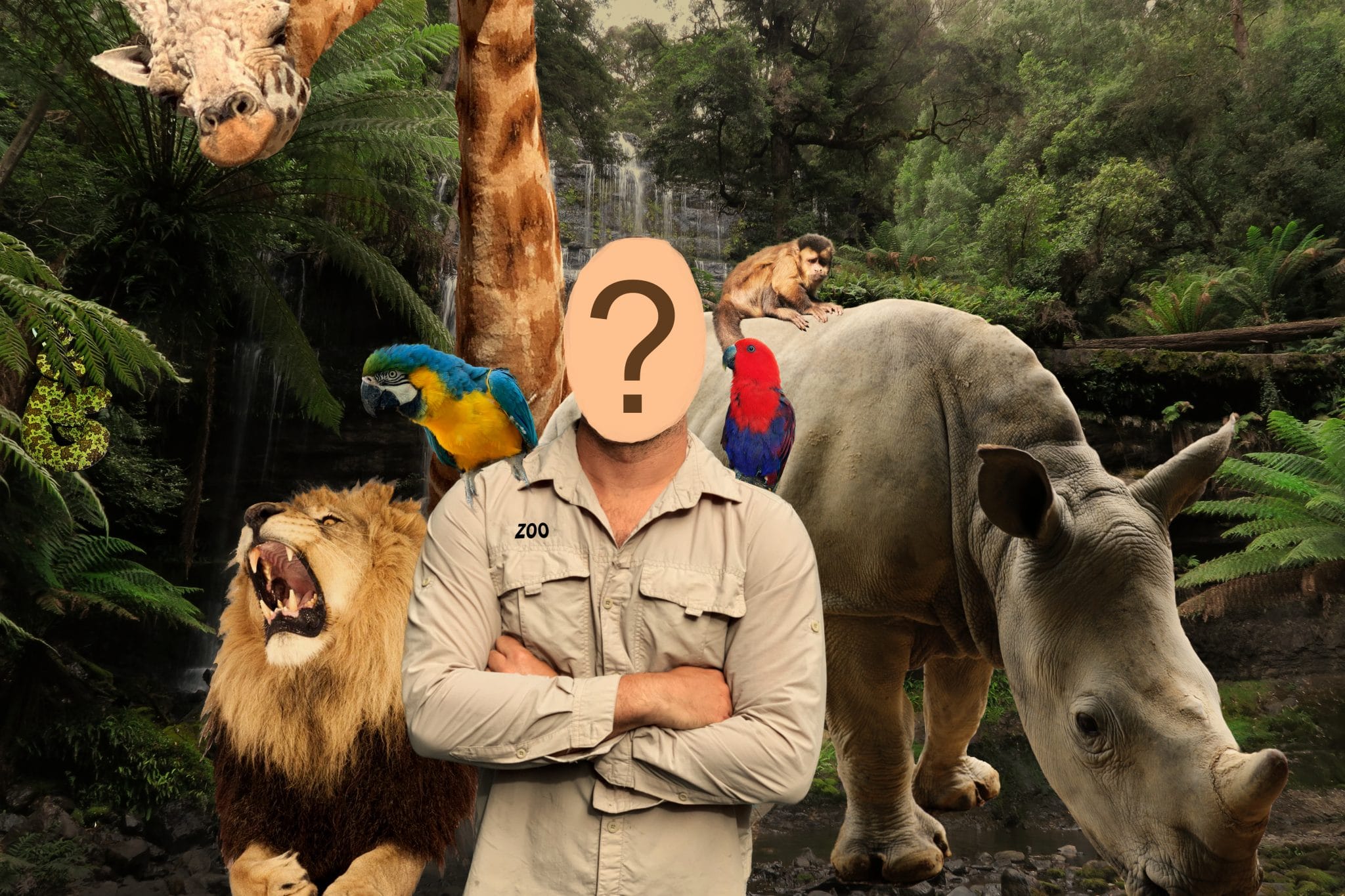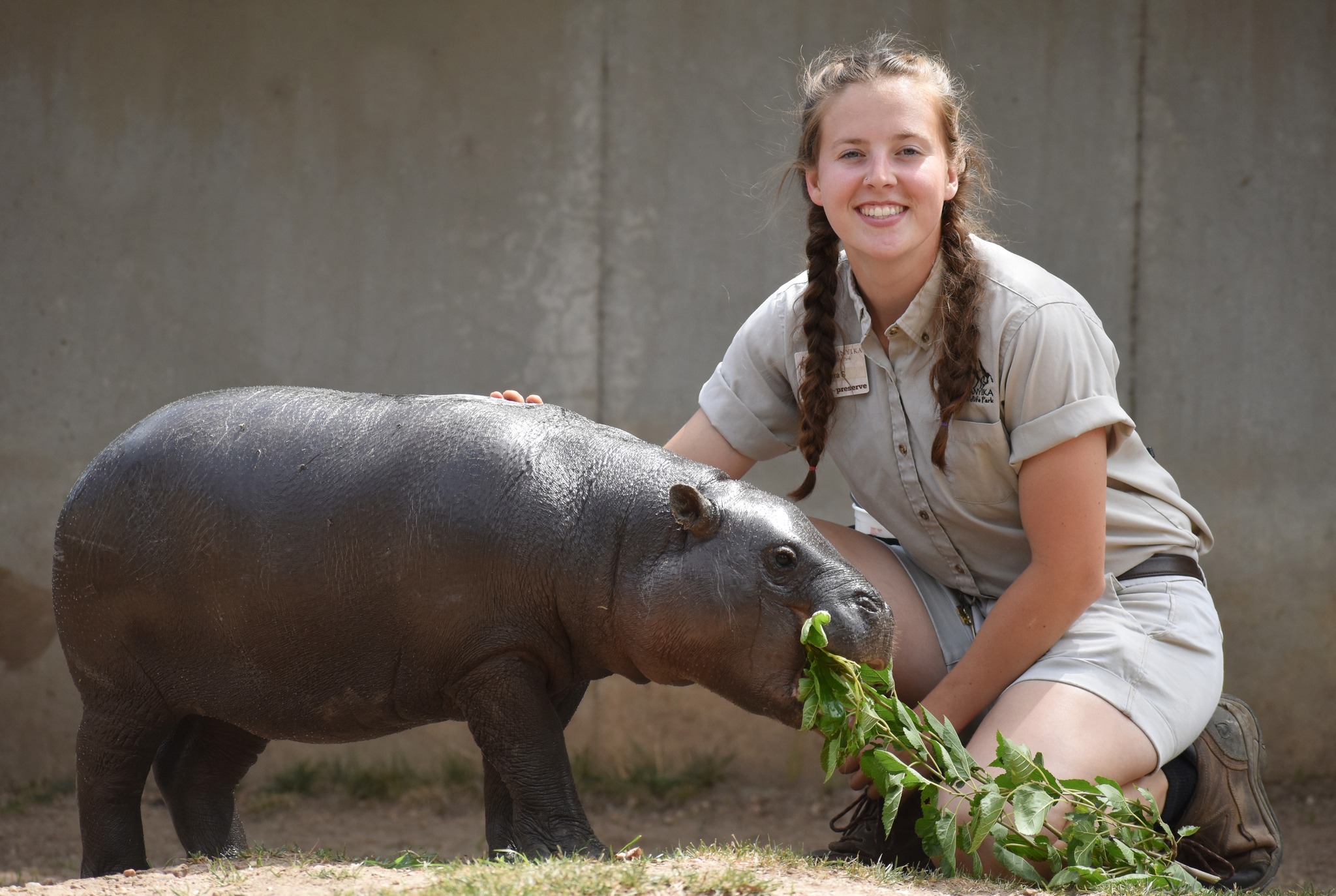The Life of a Zoo Keeper

The life of a zoo keeper is a fascinating and demanding one, filled with the joys of working with animals and the challenges of ensuring their well-being. Zoo keepers are responsible for the daily care of a diverse range of animals, from majestic lions to tiny insects, and their work is essential for maintaining the health and happiness of these creatures.
Daily Routines
Zoo keepers have a variety of tasks that they perform on a daily basis. These tasks include:
- Feeding Schedules: Zoo keepers must carefully prepare and deliver food to each animal according to their specific dietary needs. This involves knowing the right types of food, the appropriate amounts, and the best methods of presentation. For example, a carnivore like a lion might receive a diet of meat, while an herbivore like a giraffe might eat a variety of plants.
- Animal Care: Zoo keepers are responsible for the overall health and well-being of the animals in their care. This includes monitoring their behavior, observing for any signs of illness or injury, and providing necessary medical attention. They also work to ensure that the animals have access to clean water, appropriate shelter, and opportunities for enrichment, such as toys and puzzles.
- Enclosure Maintenance: Zoo keepers are also responsible for maintaining the animals’ enclosures. This includes cleaning the enclosures, repairing any damage, and ensuring that the animals have adequate space and a stimulating environment.
Challenges of Working with Different Animal Species
Working with different animal species presents a variety of challenges for zoo keepers. Each species has its own unique characteristics and needs, requiring zoo keepers to develop specialized skills and knowledge.
Unique Skills and Knowledge Required for Specific Animal Care
Zoo keepers must possess a diverse range of skills and knowledge to care for the animals in their charge.
- Animal Behavior: Zoo keepers need to understand the behavior of the animals they care for, including their social interactions, communication patterns, and natural instincts. This knowledge is essential for providing appropriate care and ensuring the safety of both the animals and the zoo staff.
- Animal Handling: Zoo keepers must be skilled in handling animals safely and effectively. This includes techniques for restraining animals for medical procedures, transporting them to different locations, and interacting with them in a way that minimizes stress.
- Veterinary Care: Zoo keepers often work closely with veterinarians to provide medical care to the animals. They must be able to recognize signs of illness or injury, administer medications, and assist with procedures.
- Environmental Enrichment: Zoo keepers play a vital role in providing environmental enrichment for the animals. This involves creating stimulating environments that encourage natural behaviors and promote physical and mental well-being.
Zoo Keeper Responsibilities

Beyond the daily tasks of feeding, cleaning, and observing animals, zoo keepers play a crucial role in the broader realm of conservation. Their responsibilities extend far beyond the confines of the zoo, encompassing efforts to protect and preserve wildlife in their natural habitats.
Conservation Efforts
Zoo keepers are actively involved in conservation efforts through breeding programs and habitat preservation initiatives.
- Breeding Programs: Zoo keepers participate in carefully managed breeding programs to ensure the survival of endangered species. They monitor animal health, reproductive cycles, and social interactions to facilitate successful breeding. These programs often involve collaboration with other zoos and conservation organizations to maintain genetic diversity and prevent inbreeding.
- Habitat Preservation: Zoo keepers contribute to habitat preservation efforts by raising awareness about threats to wildlife and advocating for policies that protect endangered species. They may also participate in research projects to understand the ecological needs of animals and develop strategies for habitat restoration.
Animal Enrichment
Zoo keepers are responsible for providing enriching environments that promote the physical and mental well-being of animals.
- Enrichment Programs: Zoo keepers implement enrichment programs that provide animals with opportunities for exploration, problem-solving, and social interaction. This can include introducing new toys, scents, or food puzzles, creating opportunities for foraging, or providing access to different environments within the zoo.
- Impact on Animal Well-being: Enrichment programs are essential for preventing boredom and stress in captive animals. They encourage natural behaviors, promote physical activity, and enhance cognitive function. Studies have shown that enriched environments can lead to improved health, reduced aggression, and increased longevity in zoo animals.
Ethical Considerations, Zoo keeper
Zoo keepers are committed to providing ethical care for animals under their supervision.
- Animal Welfare: Zoo keepers prioritize the well-being of animals by providing them with adequate space, proper nutrition, and a healthy environment. They also strive to minimize stress and discomfort for animals during procedures like medical examinations or transport.
- Best Practices: Zoo keepers adhere to strict ethical guidelines and best practices for animal care. These guidelines emphasize the importance of humane treatment, responsible breeding, and the avoidance of practices that could harm animals.
The Zoo Keeper’s Impact

Beyond caring for the animals, zoo keepers play a crucial role in educating the public about animal conservation and biodiversity. They act as ambassadors for the animal kingdom, inspiring a sense of wonder and responsibility for the planet’s diverse ecosystems.
The Role of Zoo Keepers in Education
Zoo keepers are more than just animal caretakers; they are educators. They share their knowledge and passion for animals with visitors, fostering a deeper understanding of animal behavior, habitat, and conservation challenges. They engage with visitors through interactive exhibits, educational programs, and engaging talks, bringing the world of wildlife to life.
Animal Care Requirements
| Animal Type | Diet | Habitat Requirements | Social Behavior | Specific Care Needs |
|---|---|---|---|---|
| African Elephant | Herbivorous, consuming grasses, leaves, bark, and fruits | Large, open spaces with access to water, mud baths, and shade | Highly social animals living in matriarchal herds | Regular foot care, veterinary checkups, and enrichment activities to stimulate their mental and physical well-being |
| Amur Leopard | Carnivorous, preying on ungulates like deer and roe deer | Forested habitats with dense undergrowth and access to water sources | Solitary animals, except during mating season | Regular veterinary care, enrichment activities, and a safe and secure environment to prevent stress and anxiety |
| Giant Panda | Herbivorous, consuming bamboo as their primary food source | Cool, mountainous habitats with dense bamboo forests | Solitary animals, except during mating season | Special dietary needs, careful monitoring of their health, and a stimulating environment to promote their well-being |
Supporting Zoos and Conservation Efforts
Zoos are vital partners in global conservation efforts. They contribute to research, conservation breeding programs, and habitat protection initiatives. By supporting zoos, individuals can directly contribute to the preservation of endangered species and the protection of biodiversity.
“Zoos are not just places to entertain, they are vital institutions that play a critical role in protecting wildlife and educating the public.” – Dr. Jane Goodall
Zoo keeper – Being a zookeeper is pretty rad, you know? You get to hang out with all kinds of animals, from lions to monkeys to even snakes! But did you know that there’s this dude, zookeeper Joe Rogan , who’s super into wildlife conservation?
He’s like, a real inspiration for anyone who wants to make a difference for animals. So yeah, being a zookeeper is more than just feeding the animals, it’s about protecting them too!
Yo, ever thought about being a zoo keeper? It’s like, the coolest job ever, right? You get to hang with all kinds of animals, from majestic lions to sassy monkeys. If you wanna see what it’s like to be a zoo keeper, check out the zookeeper movie.
It’s a hilarious flick that shows the real deal, but with a whole lot more laughs. So, yeah, if you’re thinking about a career with animals, being a zoo keeper is definitely worth considering.
